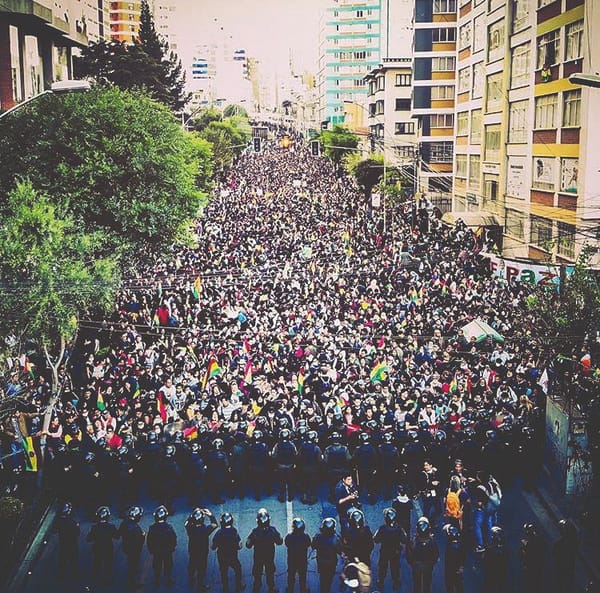A Fourth Response on “Companies in China”
Charles Titmuss responds to articles from Yuchu Liu and Jun Liu. He hopes he doesn’t end up in prison

This article forms part of a series of articles and responses, originating with Charles Titmuss' (2019 Comment Editor) article "Companies in China".
It would appear that I have drawn the ire of two commentators due to articles that I wrote a couple of weeks ago. This is the last issue in which such an exchange will feature as there are other issues that deserve our attention.
Before moving into the bulk of my response, I would like to make the following statements. Jun Liu’s article is very keen to point out that I have broken UK law. I would encourage him to take these charges to the police. However, I would warn him that wasting police time is also an offence. I would also appreciate it if Yuchu Liu could read the content of my article more closely. I specifically stated that “I am absolutely not accusing the author of acting on behalf of the CCP.” Do not mischaracterise what I have said, it is intellectually dishonest and beneath us all.
Responding to two demands for apology is more challenging than responding to one. Therefore, I shall make the following argument.
China in the international sense is a nation-state actor. Although it may act in concordance with the will of the people of China, it is distinct from the people of China. It takes the decisions and leads, and as such it must be treated as the responsible party for actions that China as a nation state commits. The conflation of the people of China, with the government of China is a fundamental ideological leap that I refuse to make. In order to make that association, one must suffer from a surfeit of nationalism. This prevents an individual from making rational and reasoned criticisms (or praise) of the government of the country in which one lives. I believe that the articles by the authors preceding these pages illustrate this point perfectly. Both authors associate themselves with their government and its actions to a degree where providing factually inaccurate and factually incomplete information is the only way to reconcile themselves with the situation as it is.
As an example of providing a non-nationalistic assessment of one’s government I would say, in terms of foreign policy, the UK over the last twenty years, but by no means only in the last twenty years, made a terrible decision to invade Iraq and Afghanistan. Hundreds of thousands of civilians died and the UK has failed to investigate its soldiers that are accused of war crimes. This is of course, unacceptable. However, the UK government lets me write these things without throwing me in prison and beating me, as has been the fate of multiple Chinese journalists and activists. Thank you, the UK government.
I would briefly like to dive into the response articles that I received to examine examples of a not-so honest examination of facts. A good example that appears in both articles is the denial that Tiananmen square was a massacre. The events on 4th of June 1989 were the culmination of months of mostly peaceful protests that were eventually met with bullets and the steel of Chinese tanks. It is true that around 20 Chinese soldiers and policemen were killed by protesters and many more were wounded. However, it is also true that many more civilian, unarmed protesters were brutally killed or wounded by the Chinese security forces and many more were subsequently arrested. Estimates range between 300-1000 killed, with many thousands being wounded.
Yuchu Liu’s piece make an extensive reference to what he describes as “so-called re-education camps.” His article frankly and honestly admits to the camp’s purpose of arbitrarily detaining an entire ethnic group. However, he feels it is justified because , in his words, as Muslims they are vulnerable to becoming terrorists. This is of course, an obscene attempt to justify the presumption of guilt of Uyghur and Khazak minorities in Xinjiang, simply because of their ethnicity and religious practices. There is currently an aggressive campaign against Islam in China, executed brutally and without mercy at the behest of the CCP leadership. Papers leaked to the New York Times. reveal the discrimination that ethnic minorities in Xinjiang face from the Chinese government. More interestingly, it also shows that not all Chinese state operators agree with the measures enforced there. 12000 investigations into local officials have been opened for failures to pursue repressive policies with sufficient zeal. Yuchu Liu’s position is not one of duty. It is a personal choice to defend the indefensible.
When it comes to Hong Kong, it is true that reporting in Western media has been more than partial. The violence of the current protests has come a very long distance away from the initial mass peaceful protests. Despite the violence of the Hong Kong police and various underhand strategies used by the pro-China side, such as the involvement of the Triads, I do not think that petrol bombing and amateur archery is the way forward. However, at the same time, I think the dogmatic response of “Hong Kong is China” is unhelpful for the resolution of this situation. At the root of the conflict is the fact that some areas of China have separatist sentiments and China has responded to these separatist sentiments with varying levels of brutality and inhumanity. The right to self determination is enshrined in the United Nations charter, which China is signed up to. To deny the opportunity of Hong Kongers to determine their own future for themselves is in itself an overly repressive response to the issues of separatism and a symptom of the increasingly assertive behaviour of China on the international stage.
Overall, I am afraid that this debate has failed to convince me that I need to apologise. In fact, it has convinced me of the opposite. Instead of complying with Yuchu Liu’s demand that I “keep my mouth shut, ” I’ll probably just be more mouthy than ever.
I will leave you, dear reader, with this: Free Tibet, Taiwan Number One, Glory to Hong Kong. And of course, make Xi Jinping Winnie the Pooh again.








